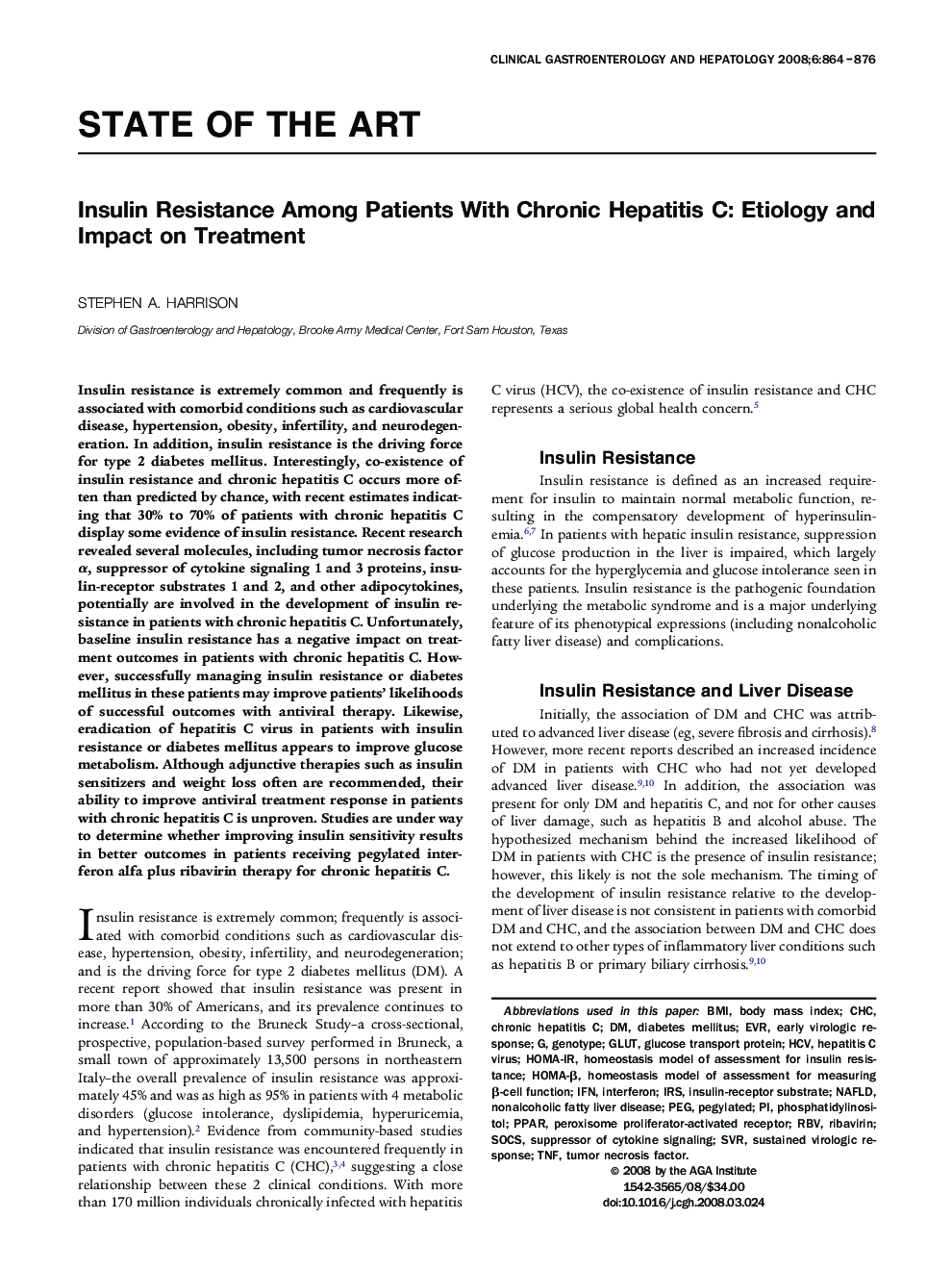| Article ID | Journal | Published Year | Pages | File Type |
|---|---|---|---|---|
| 3285540 | Clinical Gastroenterology and Hepatology | 2008 | 13 Pages |
Abstract
Insulin resistance is extremely common and frequently is associated with comorbid conditions such as cardiovascular disease, hypertension, obesity, infertility, and neurodegeneration. In addition, insulin resistance is the driving force for type 2 diabetes mellitus. Interestingly, co-existence of insulin resistance and chronic hepatitis C occurs more often than predicted by chance, with recent estimates indicating that 30% to 70% of patients with chronic hepatitis C display some evidence of insulin resistance. Recent research revealed several molecules, including tumor necrosis factor α, suppressor of cytokine signaling 1 and 3 proteins, insulin-receptor substrates 1 and 2, and other adipocytokines, potentially are involved in the development of insulin resistance in patients with chronic hepatitis C. Unfortunately, baseline insulin resistance has a negative impact on treatment outcomes in patients with chronic hepatitis C. However, successfully managing insulin resistance or diabetes mellitus in these patients may improve patients' likelihoods of successful outcomes with antiviral therapy. Likewise, eradication of hepatitis C virus in patients with insulin resistance or diabetes mellitus appears to improve glucose metabolism. Although adjunctive therapies such as insulin sensitizers and weight loss often are recommended, their ability to improve antiviral treatment response in patients with chronic hepatitis C is unproven. Studies are under way to determine whether improving insulin sensitivity results in better outcomes in patients receiving pegylated interferon alfa plus ribavirin therapy for chronic hepatitis C.
Keywords
GLUTinsulin-receptor substrateNAFLDTNFpegylatedEVRRBVCHCSOCSIRSSVRPPARHOMA-IRHOMA-βinterferonIFNNonalcoholic fatty liver diseaseDiabetes mellitusRibavirinsuppressor of cytokine signalingbody mass indexBMItumor necrosis factorphosphatidylinositolchronic hepatitis CHCVHepatitis C virusearly virologic responseSustained virologic responseGlucose transport proteinPEGGenotypeperoxisome proliferator-activated receptor
Related Topics
Health Sciences
Medicine and Dentistry
Gastroenterology
Authors
Stephen A. Harrison,
